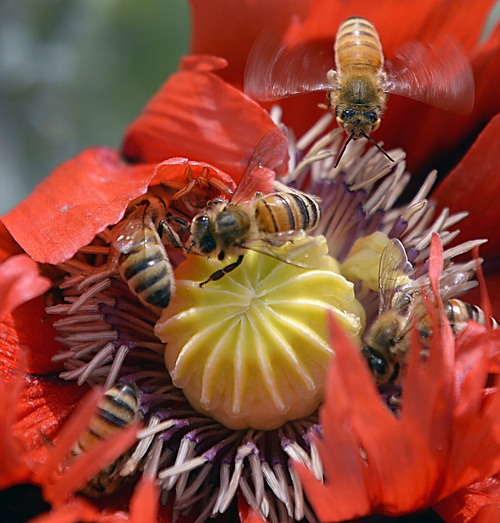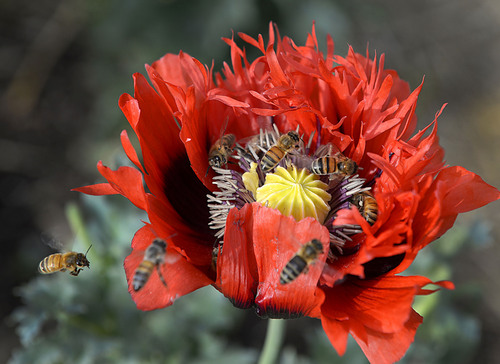This is an archived article that was published on sltrib.com in 2014, and information in the article may be outdated. It is provided only for personal research purposes and may not be reprinted.
If results of a Utah Department of Agriculture and Food survey are any indication, there's a lot of buzz going on in Utah's backyards.
Beekeeping has increased as a hobby and as a second source of income, the department said in a report on the Overwintering Survey 2013-2014, posted this summer on its website.
Of the 303 beekeepers who responded to the survey last spring, 52 percent did not own hives the previous year.
The agriculture department also said that fewer colonies died last winter than the winter before. Of survey respondents, 12 percent reported having more losses than the previous year, but 20 percent said they had fewer losses than the previous year.
Even so, beekeepers still lost about a third of their bees, a typical loss nationwide, said Clint Burfitt, manager for the department's apiary inspection and beekeeping program.
Out of a total of 1,817 colonies belonging to survey respondents, 651 died last winter.
"You would expect some level of decline or they would be in every tree hole around," Burfitt said.
Salt Lake City and South Jordan were the deadliest places in Utah for the honey-bearing insects, losing larger proportions of their bees during the winter.
Colonies thrived in American Fork, Kaysville and Orem, the cities with the lowest number of bee deaths during the 2013-2014 winter.
The survey didn't explore why bees wintered better in some cities than in others.
The survey asked beekeepers five questions:
• Where are your bees?
• How many colonies were in your bee yard in the 2013-2014 season?
• How many colonies died?
• Were the losses higher or lower than previous winter's?
• Are the hives migratory or stationary?
Of the 303 beekeepers responding to the survey, the average number of colonies was five, and the average number of deaths was two colonies.
The agriculture department sent the survey to all Utah registered beekeepers, and they filled it out online from February through May.
Burfitt said he surveyed beekeepers to start a "long-running tally on Utah's bee losses." It's not a scientific study, he noted.
Beekeeping is on the rise, he said, because "People are increasing their awareness of their natural surroundings."
Burfitt also suggested beekeepers look into native pollinator gardens.
Twitter: @DanielleKManley





